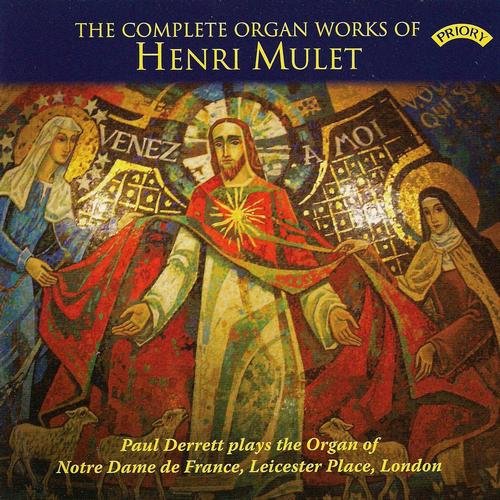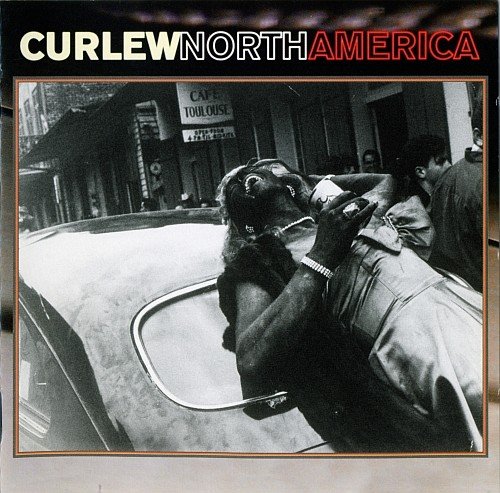Paul Derrett - Henri Mulet: The Complete Organ Works (2017)

Artist: Paul Derrett
Title: Henri Mulet: The Complete Organ Works
Year Of Release: 2017
Label: Priory Records
Genre: Classical
Quality: FLAC (tracks)
Total Time: 01:40:41
Total Size: 318 Mb
WebSite: Album Preview
Tracklist: Title: Henri Mulet: The Complete Organ Works
Year Of Release: 2017
Label: Priory Records
Genre: Classical
Quality: FLAC (tracks)
Total Time: 01:40:41
Total Size: 318 Mb
WebSite: Album Preview
CD1:
Esquisses byzantines:
01. No. 1, Nef (12:41)
02. No. 2, Vitrail (3:16)
03. No. 3, Rosace (8:44)
04. No. 4, Chapelle des Morts (4:45)
05. No. 5, Campanile (6:03)
06. No. 6, Procession (5:51)
07. No. 7, Chant funèbre (6:42)
08. No. 8, Noël (2:52)
09. No. 9, In paradisum (6:38)
10. No. 10, Tu es Petra... (4:34)
CD2:
01. Méditation religieuse (6:56)
02. Petit offertoire (3:00)
03. Sortie douce (2:07)
04. Prière (6:45)
05. Carillon-Sortie (5:27)
06. Offertoire funèbre (6:09)
07. Offertoire pour la fête du très Saint Rosaire (6:58)
08. Toccata on O Filii et Filiae (2:36)
Performers:
Paul Derrett – organ
Mulet is known for only two pieces, the Carillon-Sortie and ''Tu es petra'' from the Esquisses byzantines. Perversely, neither is typical of his output for, with the exception of the ''Procession'' from Esquisses, everything else is quiet and introverted.
For that reason it is all too easy to listen through these discs and, always provided one survives the peculiarly soporific atmosphere such sustained gentleness provokes, come out with the abiding impression of a composer of sweet, inoffensive and insignificant trifles. But taking each piece on its own (and I found this was the only way to listen) one uncovers a wealth of imagination and originality. Paul Derrett is probably the ideal champion for this task since he possesses a rare ability to search out new and unusual registrations, how easy it would be to register each piece virtually identically and so emphasize their similarity. Yet Derrett has taken considerable pains to treat each piece afresh and the result is immensely satisfying. He is, of course, greatly helped by the lovely sound and resourceful instrument in Notre Dame de France and by the warm sympathetic recording.
There are only four opportunities for any measure of technical virtuosity, and in one (the Carillon-Sortie) I find Derrett rather uninspired. Nevertheless ''Procession'' builds up to a shattering climax while ''Tu es petra'' receives a truly outstanding performance. The second disc finishes on a thunderous note with a Toccata by the American composer, Lynnwood Farnam. This seems a little out of place (the tenuous connection is that the last Mulet piece was written as a memorial for Farnam) but provides a necessary release from such a sustained period of subdued listening.'
For that reason it is all too easy to listen through these discs and, always provided one survives the peculiarly soporific atmosphere such sustained gentleness provokes, come out with the abiding impression of a composer of sweet, inoffensive and insignificant trifles. But taking each piece on its own (and I found this was the only way to listen) one uncovers a wealth of imagination and originality. Paul Derrett is probably the ideal champion for this task since he possesses a rare ability to search out new and unusual registrations, how easy it would be to register each piece virtually identically and so emphasize their similarity. Yet Derrett has taken considerable pains to treat each piece afresh and the result is immensely satisfying. He is, of course, greatly helped by the lovely sound and resourceful instrument in Notre Dame de France and by the warm sympathetic recording.
There are only four opportunities for any measure of technical virtuosity, and in one (the Carillon-Sortie) I find Derrett rather uninspired. Nevertheless ''Procession'' builds up to a shattering climax while ''Tu es petra'' receives a truly outstanding performance. The second disc finishes on a thunderous note with a Toccata by the American composer, Lynnwood Farnam. This seems a little out of place (the tenuous connection is that the last Mulet piece was written as a memorial for Farnam) but provides a necessary release from such a sustained period of subdued listening.'

![Mario Rusca quintet / nonet - 4th Dimension (2024) [Hi-Res] Mario Rusca quintet / nonet - 4th Dimension (2024) [Hi-Res]](https://www.dibpic.com/uploads/posts/2024-11/1730455424_cover.jpg)

![Chet Baker - Blood, Chet And Tears (2024) [Hi-Res] Chet Baker - Blood, Chet And Tears (2024) [Hi-Res]](https://www.dibpic.com/uploads/posts/2024-11/1730428059_sbm96hruan2la_600.jpg)


![Anton Dromberg & Anna Berglund - Stars (2024) [Hi-Res] Anton Dromberg & Anna Berglund - Stars (2024) [Hi-Res]](https://www.dibpic.com/uploads/posts/2024-10/1730209304_folder.jpg)

